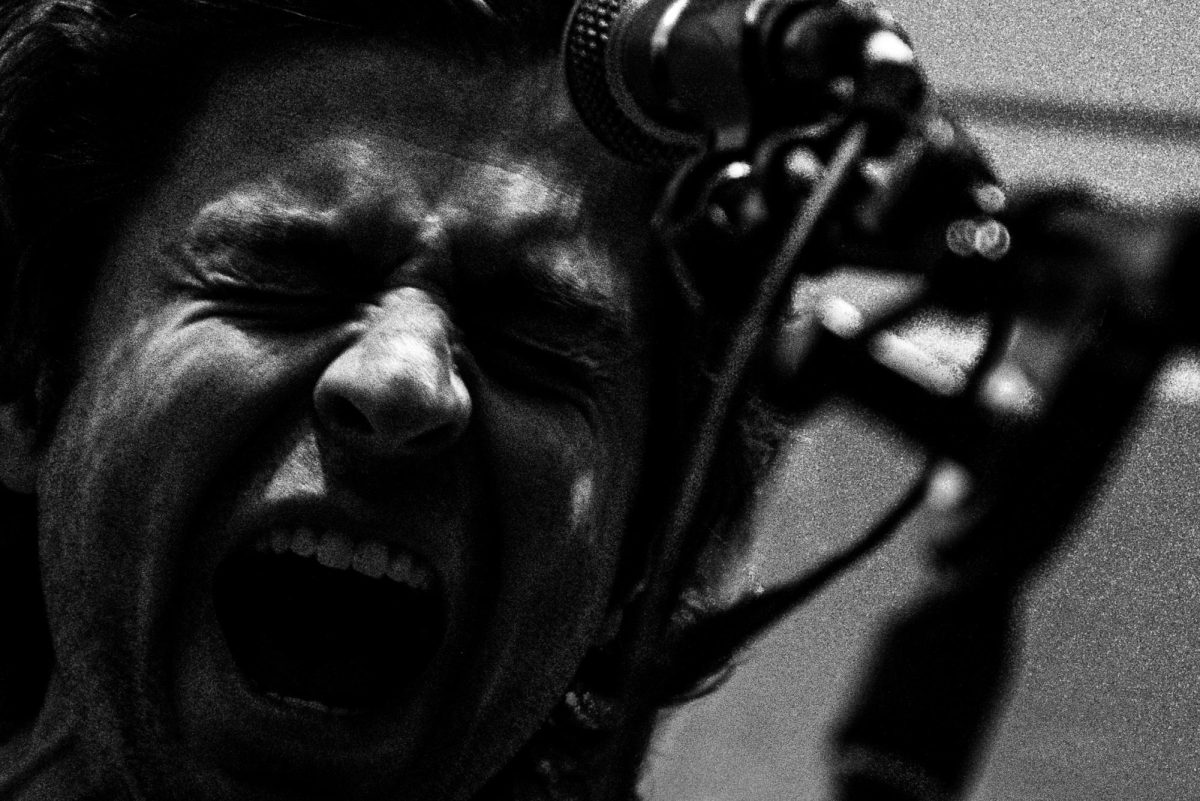Transitory Rage: James Blake’s Genius is Showing
April 12, 2013
 James Blake made a name for himself as a pioneer of electronic music. Glitched explosive beats, sweeping synth and Joni Mitchell-esque crooning are just a few of the technical weapons in Blake’s ever-expanding musical arsenal. His new album Overgrown doesn’t break the trend of intrigue and surprise that comes along with each release by presenting haunting mantras, a RZA feature and some Radiohead-flavored beats. Blake’s decisiveness as a producer and how he makes the electronic elements the focal point of a track, as he does on the album’s first single “Retrograde,“are what make him great. Blake’s thin line between silky smooth and deep synth bangers is more blurred on this album than ever before, particularly on songs “Voyeur” and “Life Round Here.” The latter of these songs happens to be my favorite (at the moment) on the album, as well as the subject of this week’s Transitory Rage.
James Blake made a name for himself as a pioneer of electronic music. Glitched explosive beats, sweeping synth and Joni Mitchell-esque crooning are just a few of the technical weapons in Blake’s ever-expanding musical arsenal. His new album Overgrown doesn’t break the trend of intrigue and surprise that comes along with each release by presenting haunting mantras, a RZA feature and some Radiohead-flavored beats. Blake’s decisiveness as a producer and how he makes the electronic elements the focal point of a track, as he does on the album’s first single “Retrograde,“are what make him great. Blake’s thin line between silky smooth and deep synth bangers is more blurred on this album than ever before, particularly on songs “Voyeur” and “Life Round Here.” The latter of these songs happens to be my favorite (at the moment) on the album, as well as the subject of this week’s Transitory Rage.
I’ll admit that I’m a sucker for arpeggiation. The rising synths at the beginning of the song rev me up immediately and the click-heavy beat that enters shortly thereafter only serves to heighten the adrenaline. Blake’s vocals flow whimsically around the arpeggiated synth while simultaneously cutting through the soundscape with a brilliant authority. The beginning of the song creates a groove so buttery smooth that he could have easily extended that mood throughout the rest of the track. But as always, there are surprises in store. The arp drops out briefly for a more breathy, atmospheric section that sounds like an In Rainbows B-side before promptly returning to the original verse portion. This builds slightly and at the two-minute mark, the arp runs through a filter, increases in speed and creates a tone of almost unbearable anticipation. The build continues nearly 30 seconds, morphing and re-morphing for what I originally thought would become a drop of “Retrograde” proportions. This is not the case. Blake instead just does the same type of verse with slightly more percussion and a jagged synth thrown into the mix. The beat then falls extremely low into the mix as slinking Ratatat-esque leads bleed into the track and Blake’s vocals swim around above them. The beat returns and dissipates once more and the song ends in a much more humble and tranquil way than I would have ever expected.
After a single listen I was completely let down. After two, three and four more listens I was even more let down. I wanted the explosion. I wanted the bass. I wanted to be blown backwards just like I had been by the first single. I was displeased but so enraptured by the album as a whole that I kept listening. After about 30 listens or so I finally saw the light and what I first saw as the song’s only flaw, I now appreciate as the true genius of the track. The array of emotions that this track conveys from total relaxation, to total anxiety is undeniably striking. Blake’s ability to restrain makes the emotions even more charged and by the end of the song I realize I haven’t taken a breath since the build began. Blake’s lyrics at the beginning of the song parallel the musical form as well. “Now we’re at square one/And we waited too long/So we’re back at square one.” The build corresponds to whatever sort of wait he is talking about and the deterioration back to a more relaxed mood at the end of the song is representative of “square one.” The lack of release leaves the listener feeling on edge but soothed, rearing to go but relaxed, about to explode, yet imploding. This paradoxical cluster of emotions is Blake’s way of showing that sometimes, things don’t turn out the way they should. And often, from this misunderstanding comes a renewed appreciation for the unexpected, which is something truly mind-blowing.














